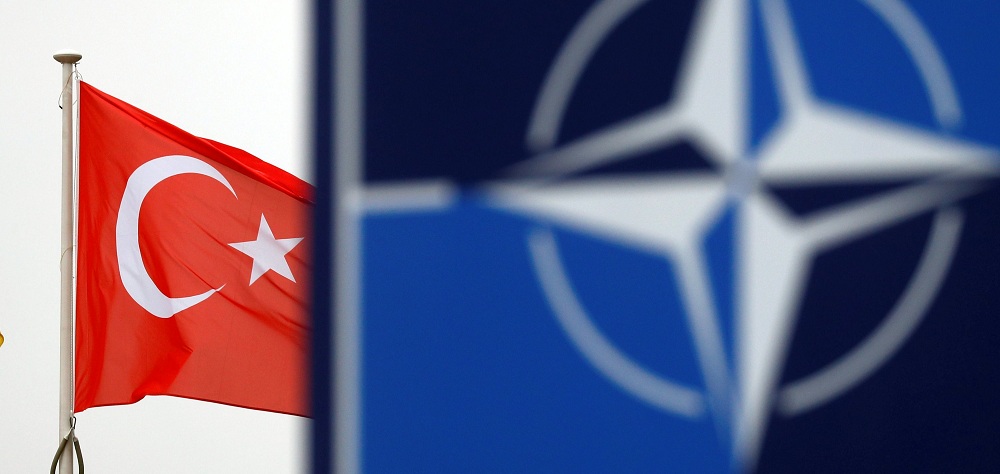Alwaght- US Secretary of State Mike Pompeo reportedly used his final NATO meeting this week to strongly rebuke Turkey over its purchase of a Russian weapons system.
Reuters news agency, city five diplomats and officials, said Pompeo at a confidential foreign ministers’ video conference on Tuesday, said Turkey was undermining NATO’s security and creating instability in the eastern Mediterranean in a dispute with Greece and non-NATO member Cyprus over gas resources. Pompeo also told Turkish Foreign Minister Mevlut Cavusoglu that Turkey was wrong to send paid Syrian fighters to Libya, as the US Defense Department concluded in a report in July, and also to the conflict in Nagorno-Karabakh.
That prompted further chiding of Turkey by allies in the meeting, including France, Greece and even tiny Luxembourg, as well as defiant counter-accusations from Cavusoglu, said the diplomats.
The top Turkish diplomat, reportedly, has accused the US of supporting militant terrorist groups mainly in Syria.
This comes as over the past four years, the Washington-Ankara relations have witnessed many highs and lows. Despite the existence of latent tensions, the US administration chose to be silent about the Turkish policies in Syria, Libya, and even Karabakh. But now that Joe Biden won the presidential election, it appears that their ties are on the track of a change and the recent Pompeo stances bear witness to this fact.
Moving beyond Trumpism
The Anti-Turkish comments by the US foreign policy chief at the NATO meeting while only some 40 days separate Donald Trump from his departure from the White House is the preliminary signal sent by Washington for closeness to the EU. The fact is that during his presidency Trump never adopted a unified policy with the Europeans in the face of Ankara. Despite efforts by European leaders like French President Emmanuel Macron, and German Chancellor Angela Merkel, Trump never escalated the tensions with President Recep Tayyip Erdogan of Turkey. Even worse, by turning a blind eye he opened the road for Ankara to implement its policies.
However in the new conditions, and especially after European countries invited the President-elect Joe Biden to join the NATO conference, it seems that the NATO policy on Turkey is in the transition from the Trumpism period. Certainly, the most important signal to the new period is the increasing US-EU closeness.
EU seeking united front against Turkey
Beyond the inter-NATO tensions, one of the future tensions that can also influence the Turkish relations with the NATO members is Ankara’s actions in the Mediterranean Sea that have so far drawn European anger. The NATO opposition and criticism is mainly caused by a 2019 pact between Turkey and Libya. Last year, Turkey signed an agreement with the Prime Minister Fayz Siraj-led Government of National Accord (GNA) to explore gas in the Eastern Mediterranean. It allows Turkey to explore and produce gas and oil in the Libyan territorial waters. Turkey asserts that according to the deal, other countries have no right to build new gas pipelines in the region without Ankara authorization.
But the exploration operation of Turkey met protest from Greece, Cyprus, Egypt, the Israeli regime, the EU, and even the US. Motivated by heightened tensions, Greece Prime Minister Kyriakos Mitsotakis warned the EU of possible military confrontation with Turkey. In July, Josep Borrell, the EU foreign policy chief, asked Turkey to stop drilling in the Mediterranean. As tensions escalated between Ankara and Athens in July, the US announced plans to hold joint war games with Greece. It deployed its aircraft carrier USS Dwight D. Eisenhower to the Mediterranean.
The European NATO members believe that the Turkish drilling only aggravates the crisis and rivalry in the Mediterranean. The Europeans have already entered a kind of political confrontation against Turkey that recently moved to a military counter due to heightened political rivalry in the past two decades. For example, on June 10, an incident took place between the Turkish and French naval forces in the Mediterranean, though NATO chose to be silent.
Additionally, the verbal tensions between Erdogan and his French counterpart Emmanuel Macron in recent months have reached their peak. Erdogan earlier questioned Macron’s psychological health and even on Friday hoped France “gets rid of Macron.”
This confrontation is not only with France, however. In November, a confrontation took place between the German warship and a Turkish commercial vessel suspected of carrying arms to Libya.
Back to Biden, it seems that by inviting the US president-elect, the Europeans intend to unite their ranks with the Americans in the face of Turkey. Certainly, they do not want to insist on Turkey's expulsion from NATO, but they want to press it into quitting its goals in the Mediterranean and closeness to Russia, as they are certain that the new American administration will be tougher on Ankara compared to the outgoing one.
But what looks more dangerous for Turkey is that even the Republicans are now taking steps towards mending the ties with the EU in the post-Trump period and Turkey is the best choice to be victimized for re-improved relations with the European bloc. Actually, the message of the recent NATO conference was that the Republican-controlled Senate is ready to team up with the White House to guillotine Turkey.



























